Related Research Articles

Carl Orff was a German composer and music educator, best known for his cantata Carmina Burana (1937). The concepts of his Schulwerk were influential for children's music education.

Judith Holfelder-Roy, known by her stage name Judith Holofernes, is a German singer, guitarist, songwriter and author.

Peter Schilling is a German synthpop musician whose songs often feature science-fiction themes like aliens, astronauts and catastrophes. He is best-known for his 1983 hit single "Major Tom " which was an international success.
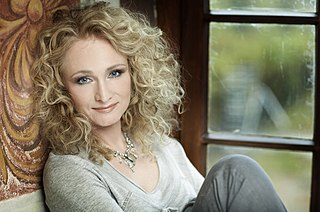
Nicole Seibert, known professionally as Nicole, is a German singer, songwriter, musician and producer. In 1982 she was the first German representative to win the Eurovision Song Contest. She has released more than 25 studio albums and 80 singles, some of which she performed and recorded in, among other languages, English, Dutch, and French. She wrote the music and lyrics for some of her recordings.

"Wir sind wir " was released as a stand-alone single by Paul van Dyk in 2004. Unlike most of his other singles, this was not released on any official studio album by van Dyk. The song features Peter Heppner on vocals, and was only recorded in German, presumably because it speaks directly to Germans and Germany.
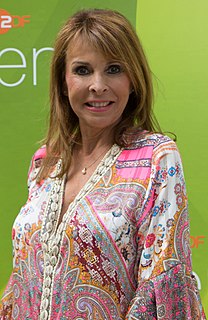
Ireen Sheer is a German-British pop singer. She had a top five hit on the German singles chart with "Goodbye Mama" in 1973. She went on to finish fourth at the Eurovision Song Contest 1974 representing Luxembourg, sixth at the Eurovision Song Contest 1978 representing Germany, and thirteenth at the Eurovision Song Contest 1985 representing Luxembourg again.

Lena Valaitis is a Lithuanian–German schlager singer who had her greatest success during the 1970s and 1980s. She finished second at the 1981 Eurovision Song Contest.

Richard Stücklen was German politician of the Christian Social Union (CSU). He had previously been a member of the NSDAP (1939–1945). From 1957 to 1966, he served as Federal Minister for Post and Communication. A member of the German parliament for more than 40 years, he served as the President of the Bundestag from 1979 to 1983.
Conny & Jean were a singing duo in Germany in the 1970s and 1980s. Their penultimate Single Hilf mir, ich lieb' dich / Wege durch die Nacht (1984) was produced by Dieter Bohlen.
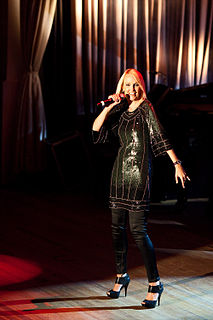
Kristina Bach is a German "Schlager", full Opern singer, lyricist, and music producer. Bach is noted for her 3 ½-octave (f=1:8) vocal range.

Tele is a German Rock/Pop-band from Freiburg.
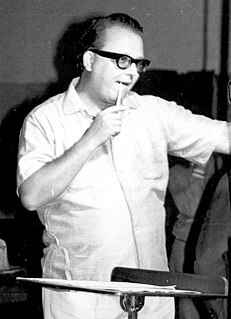
Siegfried Behrend was a German classical guitarist and composer.
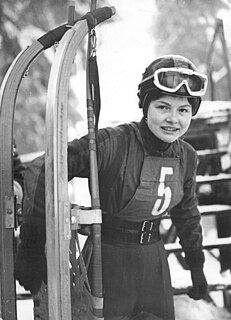
Ortrun Zöphel-Enderlein is a former East German (GDR) luger, and one of the most successful lugers in the 1960s. Enderlein started her working career at the SC Traktor Oberwiesenthal, and was first introduced to luge in her home village of Raschau in the Ore Mountains. In the 1964 Winter Olympic Games in Innsbruck, she became the first female luger to win gold at the Olympics. and won the World Cup in 1965 in Davos and 1967 in Hammarstrand. The athletic achievements of the lugers Thomas Köhler and Enderlein were celebrated and politicised in the GDR during the Cold War when the GDR was not recognised by West Germany, and athletic events in either part of Germany with athletes from both countries were not permitted because of the Hallstein Doctrine.

Siegfried Köhler was a German conductor and composer of classical music. He worked as general music director of opera houses such as Hessisches Staatstheater Wiesbaden and the Royal Swedish Opera. Köhler conducted premieres of works by Hans Werner Henze and Volker David Kirchner, among others, and revived rarely performed operas. He also composed music for the stage and taught at universities of music in Cologne and Saarbrücken.
Siegfried Köhler was a German composer in the German Democratic Republic.
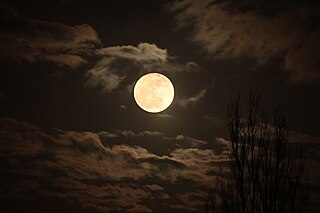
"Der Mondabend", WAB 200, is a lied composed by Anton Bruckner in c. 1850 for Aloisia Bogner.

Kirchenlied is a German Catholic hymnal published in 1938. It was a collection of 140 old and new songs, including hymns by Protestant authors. It was the seed for a common Catholic hymnal which was realised decades later, in the Gotteslob (1975).

"Weißt du, wie viel Sternlein stehen" is a German lullaby and popular evening song. The lyrics were written by the Protestant pastor and poet Wilhelm Hey (1789–1854), who published them first in 1837. The melody is recorded back to 1818. A poetic English translation of the first and third verse is by Henry William Dulcken (1832–1894).
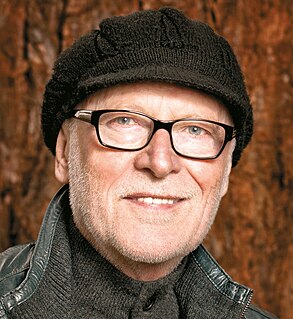
Siegfried Fietz is a German singer-songwriter, composer, music producer and sculptor. He is known for songs of the genre Neues Geistliches Lied, particularly his setting of Dietrich Bonhoeffer's poem "Von guten Mächten".

"Nun, Brüder, sind wir frohgemut" is a German Catholic hymn. It was written by Georg Thurmair as both a pilgrimage song and a Marian hymn. The melody was composed by Adolf Lohmann, who wrote a choral setting in 1936. Related to youth pilgrimages to an image of Mary at the Altenberger Dom, it is also known as "Altenberger Wallfahrtslied". The song is regarded as an Oppositionelles Lied, in subtle protest against the Nazi regime.
References
- ↑ Köhler, Siegfried: "Tausend Sterne sind ein Dom". In: Bernd Pachnicke (ed.): All mein Gedanken. Deutsche Volkslieder. (Singstimme/Gitarre). Edition Peters, Leipzig 1980, p. 420.
- ↑ Dieter Härtwig: Köhler, Siegfried. In: Sächsische Biografie . Published by the Institute of Saxon History and Cultural Anthropology (ISGV) in Dresden.